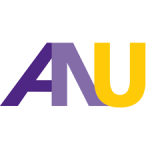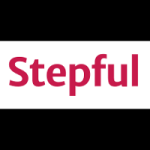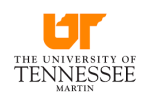Phlebotomists are Allied Healthcare professionals who collect, pack, and provide blood samples to be analyzed by a lab.
A phlebotomy training course typically takes one year or less to complete and prepares students for entry-level work in the medical field.
Budding phlebotomists can earn a certificate, which takes a few months, or a diploma, which requires a time commitment of one year.
After graduation, students can apply for certification, which most employers mandate before starting the position.
A high school diploma is the only educational requirement for those who want to jump into the training immediately.
Other mandates include a background check, completed application, immunization records, and references.
To learn more about the best online phlebotomy training programs, keep reading!
Best Online Phlebotomy Training Programs
American National University
AMU has combined online ECG and phlebotomy diploma program costs $12,600.
To be eligible for the program, candidates must hold an associate degree or bachelor’s degree in any subject from an accredited university.
AMU is one of the only schools that has a lecture and lab component that utilizes electronic phlebotomy and ECG simulators in the coursework.
However, the school still requires an externship through a local physician’s office or clinic to meet certification requirements.
The Distance Education Accrediting Commission (DEAC) and the Accrediting Bureau of Health Education Schools accredited the program.
Like most other schools on this list, admissions are rolling on a first-come, first-served basis.
Beacon Hills Career Training
The 100% online video phlebotomy technician training program offered by Beacon Hills Career Training is ideal for certified nursing assistants, RNs, registered nurses, licensed vocational nurses, and medical assistants who need to refresh or advance their medical education.
Program graduates work in outpatient clinics, blood banks, hospitals, doctor’s offices, and other medical facilities.
It’s important to note that the school does not provide clinical practice locations for students, so learners must find them to conduct an externship.
The program comprises extensive videos demonstrating how to draw blood using venipuncture and fingerstick.
The program costs $550 if paid in full, admissions are rolling, and the program is NHA-, NCCB-, and PTCB-accredited.
Career Step
The Career Step phlebotomy technician program was developed for busy professionals who want to increase their medical knowledge or change careers.
Students have around-the-clock access to all materials so that the self-paced program can be completed in around one year.
Learners receive 325 hours of online instruction; a 40-hour externship is required to graduate.
This program is longer than most others because the school reports more comprehensive training with continuous career and mentor support.
This equates to more individual attention to each student and a more detailed curriculum.
Program tuition costs $2,200, and applications are accepted on a rolling basis.
Unfortunately, the program is not accredited but focuses on the certification process.
Heart to Heart Healthcare Training
Heart to Heart Healthcare Training is an NHA-accredited school featuring a hybrid online and in-lab phlebotomy program across Michigan.
Applications are rolling out, so students can apply anytime; tuition costs $1,075 with a $300 deposit due immediately and $775 before starting lab work.
All lectures occur within the virtual classroom, but blood drawing practice requires an in-lab setting.
Students attend lab twice weekly while completing the online lectures as part of the curriculum.
The total time commitment is eight weeks, and all lectures, quizzes, exams, homework, and PowerPoints are available virtually.
Heritage Health Career Center
The instructor-led phlebotomy course Heritage Health Career Center offered was developed for students seeking certification in an entirely online learning format.
The $1,200 tuition includes the national certification exam cost after completing the program to be proctored in their city.
Students can access around-the-clock helpdesk support, tests, videos, assignments, and all PowerPoint lectures via the online portal.
While the lectures are entirely online, students must complete 100 successful blood draws at the end of their in-person clinical externship.
The Georgia Nonpublic Postsecondary Education Committee accredits the Heritage Health Career Center.
Kaiser Permanente School of Allied Health Sciences
Created in 1989 as part of the Kaiser Permanente healthcare system, Kaiser’s mission was to develop clinical instruction at medical centers across the United States.
The accredited school offers certificates, diplomas, and associate and bachelor’s degree programs.
The school offers.
MedCerts
The 12-week online phlebotomy training program MedCerts offers prepares students for the Phlebotomy Technician Certification examination.
The school’s website states they provide one-year post-program access to career coaches and the career center, individual support based on behavior and performance, and dedicated student success advisors to help existing learners.
It’s important to note that the program doesn’t meet regulatory or licensing requirements for those living in Washington or California, and the Georgia Nonpublic Postsecondary Education Commission does not recognize the program, so Georgia residents cannot enroll.
The program tuition cost is $2,000, and the school is NHA-accredited despite failing to meet other regulatory requirements.
Phlebotomy Career Training
Offering an online phlebotomy technician certification, Phlebotomy Career Training developed this curriculum to accommodate busy schedules.
The online lectures cover physiology and anatomy principles, equipment use and maintenance, point-of-care testing, and correct phlebotomy techniques.
Once students complete the program, they must pass an online certification examination to receive a Phlebotomy Technician Certification.
The coursework is available around the clock and is self-paced, so completion times vary from four weeks to six months.
Learners must conduct in-person clinics at the program’s end, performing 30 supervised venipunctures, which meets clinical core requirements.
The NHA-accredited program costs $600, and applications are on a rolling basis.
Preppy
Preppy is a game-changer for budding phlebotomists since the lecture is entirely online, all textbooks or fees are included in the tuition cost, the school offers the fastest completion, and students receive a free laptop.
Best of all, the school partnered with the accredited Auburn University to give students certification preparation and career training.
This self-paced program can be completed in as quickly as two months, and students are prepared to sit for the Certified Phlebotomy Technician examination.
Saint Peter’s University 
Featuring an entirely online course to train aspiring phlebotomists to work in the medical field, this self-paced program prepares graduates to sit for the Certified Phlebotomy Technician Specialist exam.
Although the program is self-paced, it takes the average student around six months to complete.
Students have another six months from that completion date to finish in-person clinical requirements, which grants a provisional certification.
Instructors advise students to meet this requirement as soon as possible so they can apply fresh knowledge to real-world medical settings.
Tuition for the NHA-accredited Saint Peter’s University phlebotomy program is $2,000, and admissions work on a rolling basis.
South Dakota State University
SDSU offers a phlebotomy certificate program that gives students the knowledge and skills to succeed in an entry-level phlebotomist position.
The certificate program is available entirely online, but students must attend the in-person laboratory courses for blood drawing training.
Part of the clinical experience is 100 hours as an externship in a live healthcare environment.
The school suggests this certificate for those enrolled in the SDSU Medical Laboratory Science, Pharmaceutical Sciences, Human Biology, and Nursing
bachelor programs. The certificate requires nine credits, which takes two semesters with lectures online and clinical in-person.
Tuition costs $355 per credit hour, and the school is HLC-accredited.
Stepful
With the bold guarantee of “Get a healthcare job, or your tuition is on us,” Stepful offers a five-week phlebotomy training program consisting of one week of in-person clinical work and four weeks of online lectures.
The school is located in Manhattan, New York, and offers morning and evening classes for those who require flexibility and job placement support.
Aspiring phlebotomists will learn to correctly draw blood, anatomy, medical terminology, physiology, equipment maintenance and use, and proper techniques.
The school’s website reports an 80% program completion rate, with 90% of students becoming certified by the program’s end.
The New York Department of Education accredits Stepful with rolling admissions and a tuition cost of $700.
University of Tennessee – Martin
UT-Martin has an online phlebotomy technician certificate in partnership with Health Ed Today.
Program requirements include 50 hours of virtual instruction, which can be completed in as quickly as eight weeks due to the self-paced learning format.
Students are granted 24/7 access to all materials for six months, and tuition costs $1,700.
Enrolled students can utilize career services, mentoring, labs, and interactive learning modules to assist with their educational progress.
Students learn how to order the drawing of blood, how to perform complete and safe venipunctures, and how to gather blood specimens safely.
Course topics include physiology and anatomy, blood collection equipment, pediatric and geriatric blood collection, and various body systems.
Candidates must already hold or pursue a high school diploma, and program graduates are well-prepared to sit for certification exams.
U.S. Career Institute
The U.S. Career Institute offers a self-paced, entirely online phlebotomy program.
Program graduates are prepared to sit for the Certified Phlebotomy Technician exam, of which the fee is included in the $979 (when paid in full) tuition cost.
USCI also offers a stellar Career Coach program that gives students individual access to a career counselor.
In addition to the online foundational courses, students must provide proof of at least ten successful finger sticks or capillaries and 30 venipunctures as part of the clinical requirement.
Students can work with the career department to help set up externships to meet this requirement. USCI is DEAC-accredited, and applications are accepted on a rolling basis.
What Courses Are in an Online Phlebotomy Program?
Although phlebotomy training coursework varies based on the school and certification type, foundational always includes the following:
- Documentation
- Hazardous material management
- How to locate veins
- How to use medical equipment
- IV insertion
- Phlebotomy scope of practice
- Physiology and anatomy
- Point-of-care testing
Can You Earn a Phlebotomy Certification Completely Online?
Although all lectures can be completed online, completing a certification without clinical work is impossible.
During the in-person lab work, students practice drawing blood on dummies, then must conduct final draws on individuals.
Programs have different lab requirements, with some specifying a certain number of hours and others having a certain number of successful venipunctures.
This lab component is required for graduation, then official certification.
Employers also like to see externships on candidate’s resumes since it proves they have applied the knowledge learned during their training program.
How Long Does It Take to Earn a Phlebotomy Certification Online?
Phlebotomy training programs range greatly in time commitment from as quickly as four months for self-paced programs to two years for associate degrees.
It’s important to note that the longer the program, the more comprehensive and well-prepared students are upon graduation and the more marketable they are to potential employers.
While associate programs have some general education core classes that must be completed, they delve deeper into each phlebotomy concept and topic.
Also, combined phlebotomy and ECG programs offer another career option for graduates and only require around a one-year time commitment.
How Much Does an Online Phlebotomy Certification Cost?
Phlebotomy program costs vary greatly depending on numerous factors, including degree type, program length, school reputation, format, and instructor qualifications.
The least expensive programs yield a certificate costing a few hundred dollars.
The most expensive programs, where learners earn an associate degree, cost tens of thousands.
It’s important to research different schools extensively and note that the cost doesn’t necessarily equate to a better school.
Summary
Candidates interested in entering the medical field will find that phlebotomy is a significant first step but requires classroom (virtual or in-person) lectures and clinical (in-person-only) experience to graduate and become certified.
Many phlebotomy programs exist, with some combining the curriculum with other medical fields to give you more employment opportunities post-graduation.
Some certificate programs are concise for those striving to enter the workforce immediately.
Others who want a more comprehensive learning experience can opt for a two-year associate degree.
Phlebotomy program graduates take many paths, from entering the workforce at hospitals, clinics, private medical practices, specialty facilities, and various other medical environments to earning a more advanced degree.
Regardless of the career path, training is required in all situations and can give students the knowledge and skills needed for success.






